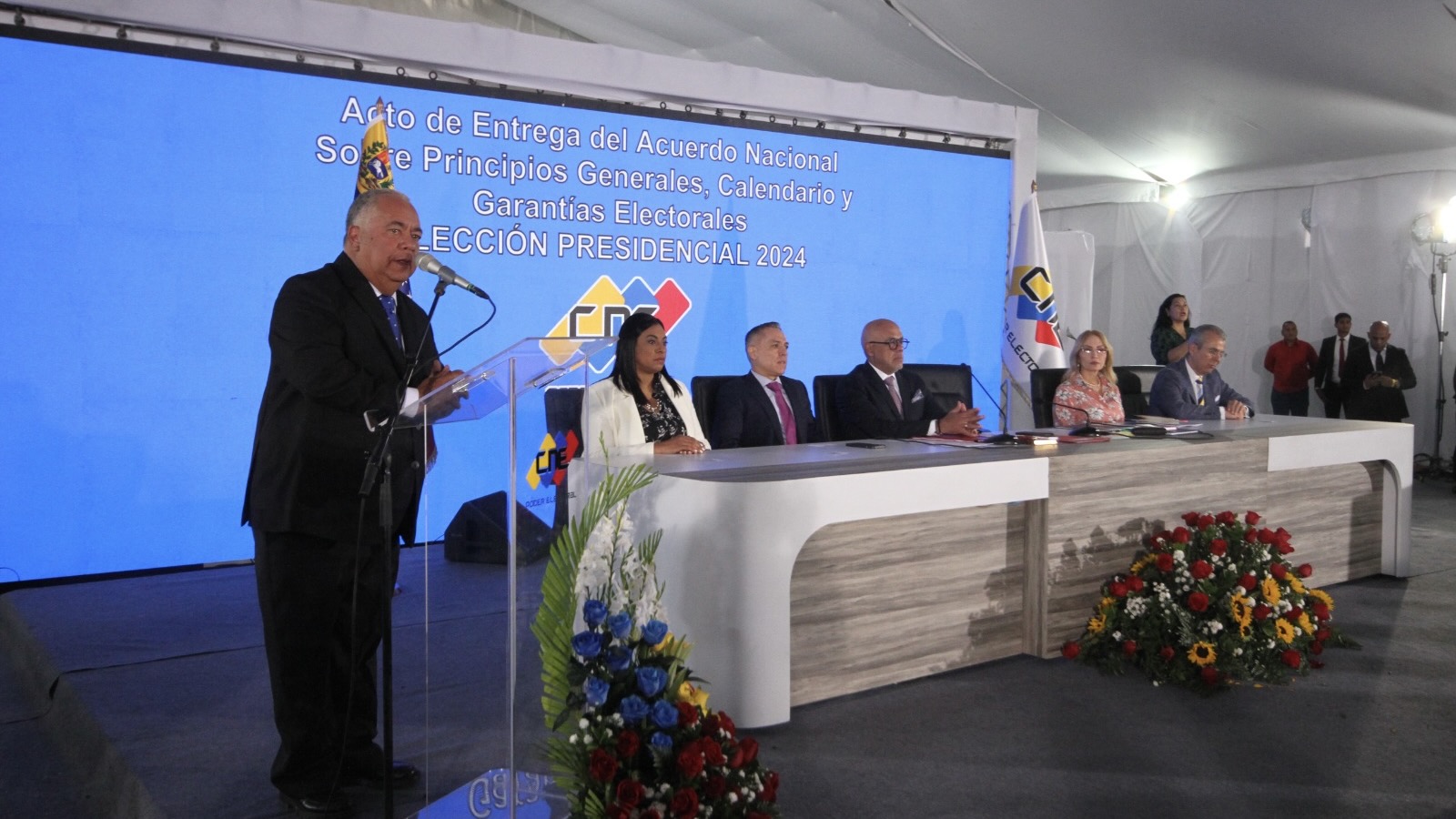On February 29, Jorge Rodríguez, the president of Venezuela’s National Assembly (AN), announced in Caracas that an agreement has been reached by 152 diverse representatives of various sectors of Venezuelan society on the status of the country’s presidential elections.
The “National Agreement on General Principles, Calendar and Broadening of Electoral Guarantees” is the product of around 500 proposals regarding different elements of the electoral process put forward by the organizations and representatives. The agreement elaborates on how the electoral process will be carried out, equity in terms of access to campaigning on traditional and social media platforms, the permission of electoral observers to witness the process, and ensuring that the electoral rolls of registered voters are updated and accurate for the election.
Another point in the documents refers to the general principles of respecting and defending national sovereignty, independence, self-determination, and territorial integrity – specifically mentioning Guayana Esequiba.
“Now we have taken the call to the most inclusive level possible, here is the signature of the sectors and political parties that represent 84% of the vote and 97% of the total political parties duly accredited in the CNE,” Rodríguez remarked of the agreement.
Venezuelan President Nicolás Maduro lauded the agreement, noting that “After almost a month of inclusive and interactive dialogue, all political, social, economic, cultural, intellectual, academic, and religious sectors signed a comprehensive document in the National Assembly, which encapsulates the best of the dialogues and agreements signed in the past in Mexico and Barbados. It has been exemplary work!”
On March 1, the following day, the Legislative branch formally submitted the Agreement to the National Electoral Council (CNE), with Jorge Rodríguez noting that “Everyone proposed different possibilities, and all of them were included in this document submitted for consideration of the CNE.”
CNE President Elvis Amoroso noted that the Council will evaluate the national agreement in the following week, saying “We very much welcome the proposal, we will begin to study it and we will be giving the people of Venezuela permanent information on how the process of studying this document is going.”
The United States has continually held the threat of sanctions above the heads of Venezuelans, through the use of rhetoric that portrays the Venezuelan electoral system as illegitimate. The United States points to Venezuela’s disqualification of María Corina Machado’s from holding public office through a 15-year ban. The Supreme Court and the government maintain that due to her role in unconstitutional and treasonous acts, such as supporting US sanctions on the people she intended to govern and engagement with foreign assets that are connected to Washington, she should not be fit to hold any office as a public servant.
The official date of the elections has yet to be determined, but many expect that as the electoral process approaches, Washington is likely to further intensify sanctions against Venezuela.





